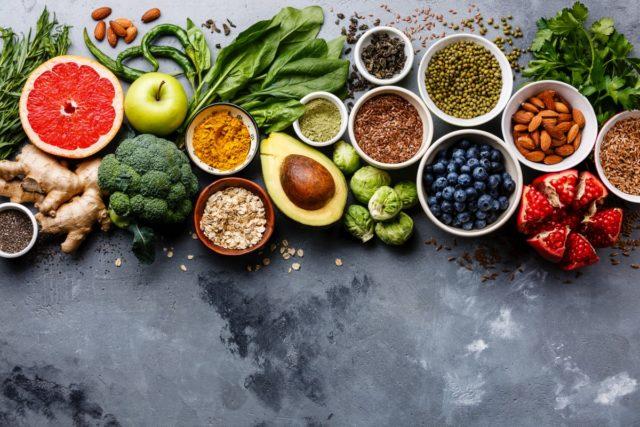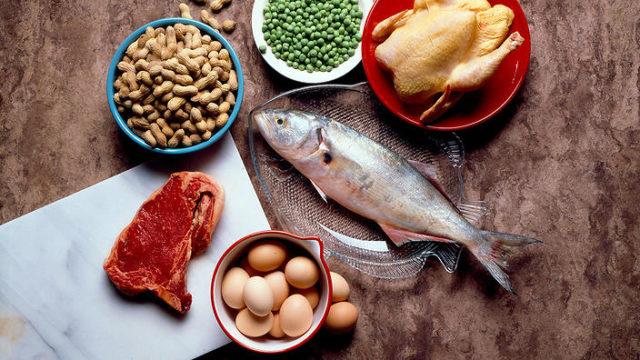There are plenty of everyday struggles that you’ll start learning are the norm now when you reach the age of 40 that you didn’t, say 5 years ago. One of those things is that your metabolism doesn’t seem to be as strong and active as it did in your 20s and early 30s.
What this means is that you’ll find it harder to maintain a healthy weight as your body ends up absorbing more calories, you’ll feel lethargic and have a lack of energy, you’ll feel hungry more often, your body will bloat, etc. Needless to say, not a bunch of fun stuff to be experiencing.
Well, the good news is that there are a few things you can do to give your metabolism the boost it needs to get it recharged and running at maximum potential even after the age of 40. You don’t need to give up just because things are stacked against you – tackle it like a champion and make nature your best friend.
Here are our top 5 tips to do that.

1. Eat Better Food
It’s time to do away with greasy late-night takeouts and desserts after every meal because healthy, nutritious food is your metabolism’s best friend. Try and cook food at home whenever possible, and eat plenty of fruits and vegetables. Buy organic foods at the grocery store, compliment your meals with high-quality proteins, foods rich in natural (good) fats like omega-3, and stay away from GMOs, sugary foods, highly processed foods, as well as food filled with additives and preservatives.
At the same time, it’s important that you do not skip meals or restrict calories to the point where you feel hungry all the time. Trust us, it can lead to the exact opposite of what you’re trying to achieve.

2. Eat More Protein
Although we’ve already talked about good food, protein gets a special mention because of how important and beneficial it is to your metabolism. Foods that will give you a good dose of much-needed protein include eggs, Greek yogurt, nut butter, beans, lentils, seeds, as well as vegetables like asparagus, spinach, and more.
Along with increasing your intake of protein, it’s also important that you make sure you get it from a varied source. So, if you have a protein-powder packed smoothie for breakfast today, you might want to switch it up with some eggs and spinach (a spinach frittata maybe?) the next.

3. Get Better Sleep
One of the best ways to boost your metabolism is to sleep better. When you sleep, your body produces hormones that affect your metabolism. Sleeping poorly will cause the increase of the hormone ghrelin, which is what makes you hungry, and a slump in the production of leptin, the hormone that makes you feel full.
A good 7 to 8 hours of sleep per night should hit the right spot. If you’re having trouble sleeping, you might want to try yoga or meditation. Other good tips are to keep electronics, work-related things, or food away from your bedroom so as to confuse your body, and to keep the conditions cool and dark.

4. Drink More Water
Staying hydrated can be the key to your health overall, but it also plays an important role in the prevention of several diseases and conditions – especially as you grow older. Yes, a humble glass of water can do all that and more for your body (and your metabolism). A glass of water half an hour before your meal will make you eat less food, and half an hour after a meal will help in digestion. Dehydration, even at its lowest levels, can cause your metabolism to slump. Ice water will trick your body into burning more calories!
But, don’t just stop there; there are plenty of other foods that contain water and also provide their own benefits to boosting metabolism. For example, coffee has been found to stimulate the nervous system, thereby boosting metabolism. Green tea is another drink you can try which also contains coffee. Fruits and vegetables are also abundant in water, some more than others.

5. Strength Training and Interval Training
There’s no getting around it – exercise is one of the best ways to boost metabolism and lose weight no matter what age you are. In fact, it’s essential. But for those above the age of 40, specific types of exercise – namely strength and interval training, can be the key to upping your metabolism and staying fit.
Strength training focuses on building up muscle, which can help counteract the effects of aging which can cause a natural loss of muscle. Interval training, which would include short bursts of intense activity with alternating periods of rest (e.g. 1 minute of cycling, 1 minute of rest, 1 minute of jumping jacks, 1 minute of rest, etc.) can help you burn calories long after you leave the gym.




